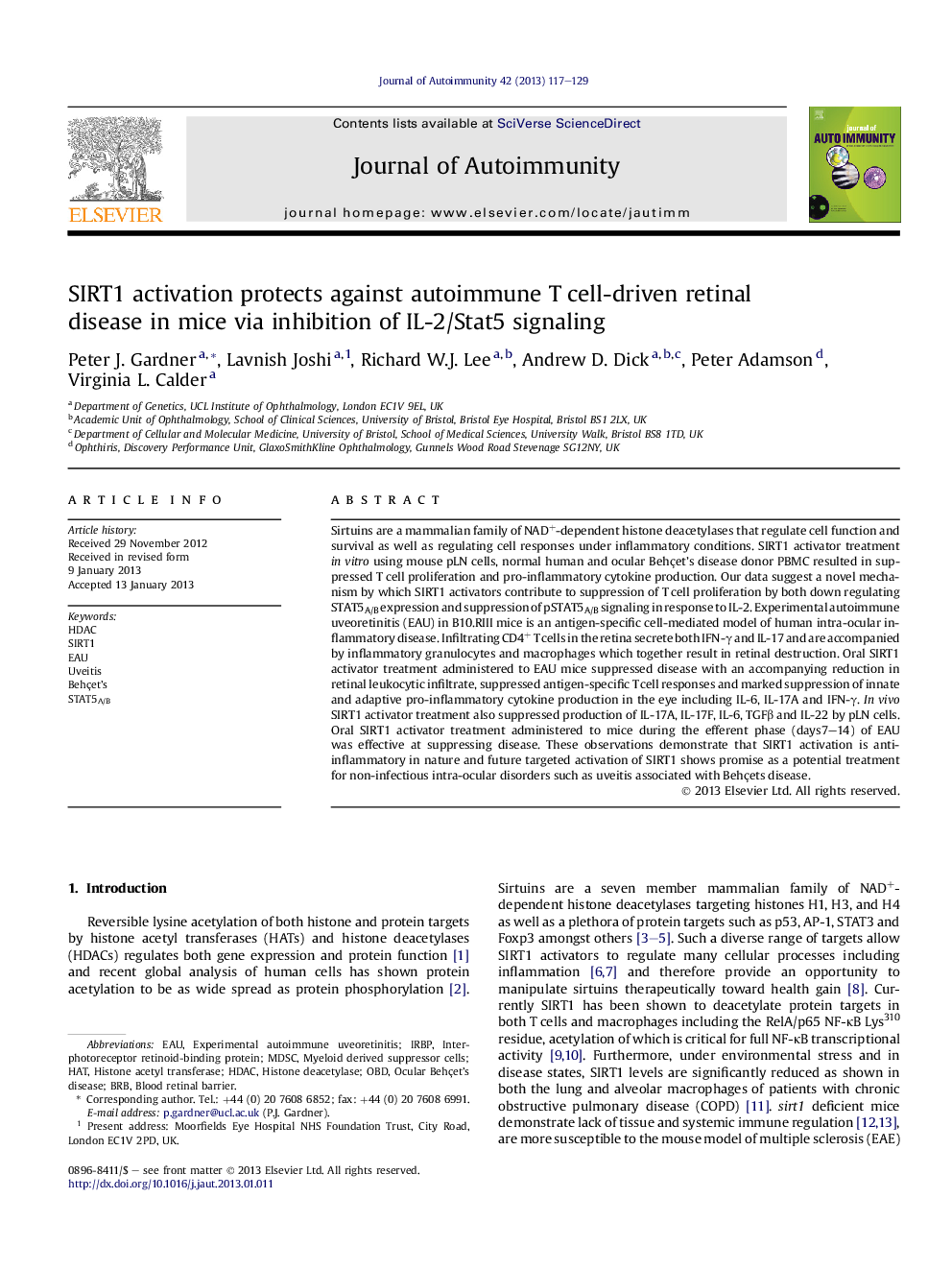| Article ID | Journal | Published Year | Pages | File Type |
|---|---|---|---|---|
| 3367887 | Journal of Autoimmunity | 2013 | 13 Pages |
Sirtuins are a mammalian family of NAD+-dependent histone deacetylases that regulate cell function and survival as well as regulating cell responses under inflammatory conditions. SIRT1 activator treatment in vitro using mouse pLN cells, normal human and ocular Behçet's disease donor PBMC resulted in suppressed T cell proliferation and pro-inflammatory cytokine production. Our data suggest a novel mechanism by which SIRT1 activators contribute to suppression of T cell proliferation by both down regulating STAT5A/B expression and suppression of pSTAT5A/B signaling in response to IL-2. Experimental autoimmune uveoretinitis (EAU) in B10.RIII mice is an antigen-specific cell-mediated model of human intra-ocular inflammatory disease. Infiltrating CD4+ T cells in the retina secrete both IFN-γ and IL-17 and are accompanied by inflammatory granulocytes and macrophages which together result in retinal destruction. Oral SIRT1 activator treatment administered to EAU mice suppressed disease with an accompanying reduction in retinal leukocytic infiltrate, suppressed antigen-specific T cell responses and marked suppression of innate and adaptive pro-inflammatory cytokine production in the eye including IL-6, IL-17A and IFN-γ. In vivo SIRT1 activator treatment also suppressed production of IL-17A, IL-17F, IL-6, TGFβ and IL-22 by pLN cells. Oral SIRT1 activator treatment administered to mice during the efferent phase (days7–14) of EAU was effective at suppressing disease. These observations demonstrate that SIRT1 activation is anti-inflammatory in nature and future targeted activation of SIRT1 shows promise as a potential treatment for non-infectious intra-ocular disorders such as uveitis associated with Behçets disease.
► SIRT1 activation suppresses mouse and human T cell responses. ► SIRT1 activation protects against disease in a mouse model of retinal autoimmunity. ► We investigate the anti-inflammatory properties of the deacetylase SIRT1. ► T cell proliferation is suppressed partly via inhibition of IL-2/STAT5 signaling. ► Translational potential of SIRT1 activation in suppressing autoimmunity is shown.
